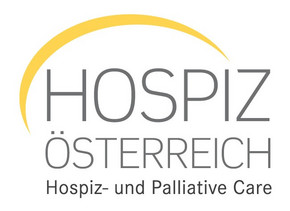Evaluation "Focus on Home Care" (Hospice Austria)

As part of the project "Home care in the center", mobile service providers in four provinces (Carinthia, Upper Austria, Styria and Vorarlberg) dealt with the question of how hospice and palliative care can be integrated into primary care. Although there are specialized teams that accompany seriously ill or dying people in their last phase of life as well as their relatives, there was a great need to familiarize employees of non-specialized teams with the topics of hospice and palliative care. Ultimately, the aim is to enable older people to make their wishes for the final phase of their lives known at an early stage and to inform everyone involved.
This sounds banal at first, but practice shows that it is by no means. For example, we know from surveys that a large proportion of people would prefer to die at home. For this wish to be fulfilled, there needs to be very good interaction between all the people and institutions involved: Relatives, nursing and caregivers, general practitioners, emergency physicians, hospitals, etc. The wishes of the person being cared for must be clearly documented. Otherwise, in an "emergency" they will have to be resuscitated and taken to hospital.
The project "Home care in the center" (HiZ) was implemented in the period 2019-2022. The aim of the project was and is to sustainably anchor hospice culture and palliative care in the participating supporting organizations/nursing associations of home care. In order to develop a corresponding hospice culture and palliative care competence in the supporting organizations, various measures were implemented. An important element was the three-day workshops for nursing and care staff, in addition, palliative care officers and groups were introduced in the supporting organizations/nursing associations, working meetings were held with the operational managers with central external stakeholders such as the home:care physicians, the mobile palliative teams, and procedural organizational changes were made (e.g., forward planning, documentation). Within the framework of HiZ, the supporting organizations/nursing associations were supported in many ways in the planning, preparation and implementation of these measures. Particularly important was cross-state networking and the exchange and transfer of knowledge.
The project took place under very difficult conditions due to the COVID-19 pandemic. On the one hand, this meant that the original three-year project duration had to be extended by at least one year. The pandemic certainly also had an impact on the results of the project and the evaluation, as was evident in some surveys. It is not possible to assess exactly what the results would have been without the pandemic. However, it can be assumed that without the pandemic, the topic of hospice and palliative care would have received more attention and the measures could have taken place in a much less stressful environment.
Various surveys were conducted in the course of the evaluation. One focus was on the employees of the supporting organizations, who were surveyed at the beginning and end of the project using a quantitative questionnaire. As part of the process evaluation, surveys were conducted among the newly introduced palliative care officers and the operational managers by means of an online questionnaire. In addition, the newly trained trainers were interviewed and feedback was obtained from the participants of the HiZ workshops.
The staff survey formed the core of the outcome evaluation. It reflects the difficult circumstances that staff faced during the project period due to the COVID 19 pandemic. This had a direct impact on the course of the project, for example, in that the workshops had to be postponed, but it also strongly influenced the framework conditions that are necessary to bring about cultural change in organizations. Caring for seriously ill and dying people requires time, exchange between all those involved, and attention - all of which were even more scarce in the wake of the pandemic than in normal everyday work. In this respect, it is noteworthy that despite these difficult framework conditions, the first successes of the project can already be seen. Due to the different framework conditions, there is a separate evaluation report for each federal state.The reports are available in German only.




![[Translate to English:] Logo FGÖ](/fileadmin/wu/_processed_/e/2/csm_fgoe_3er_logo_2018_zusatz_61968ccc09.jpg)
